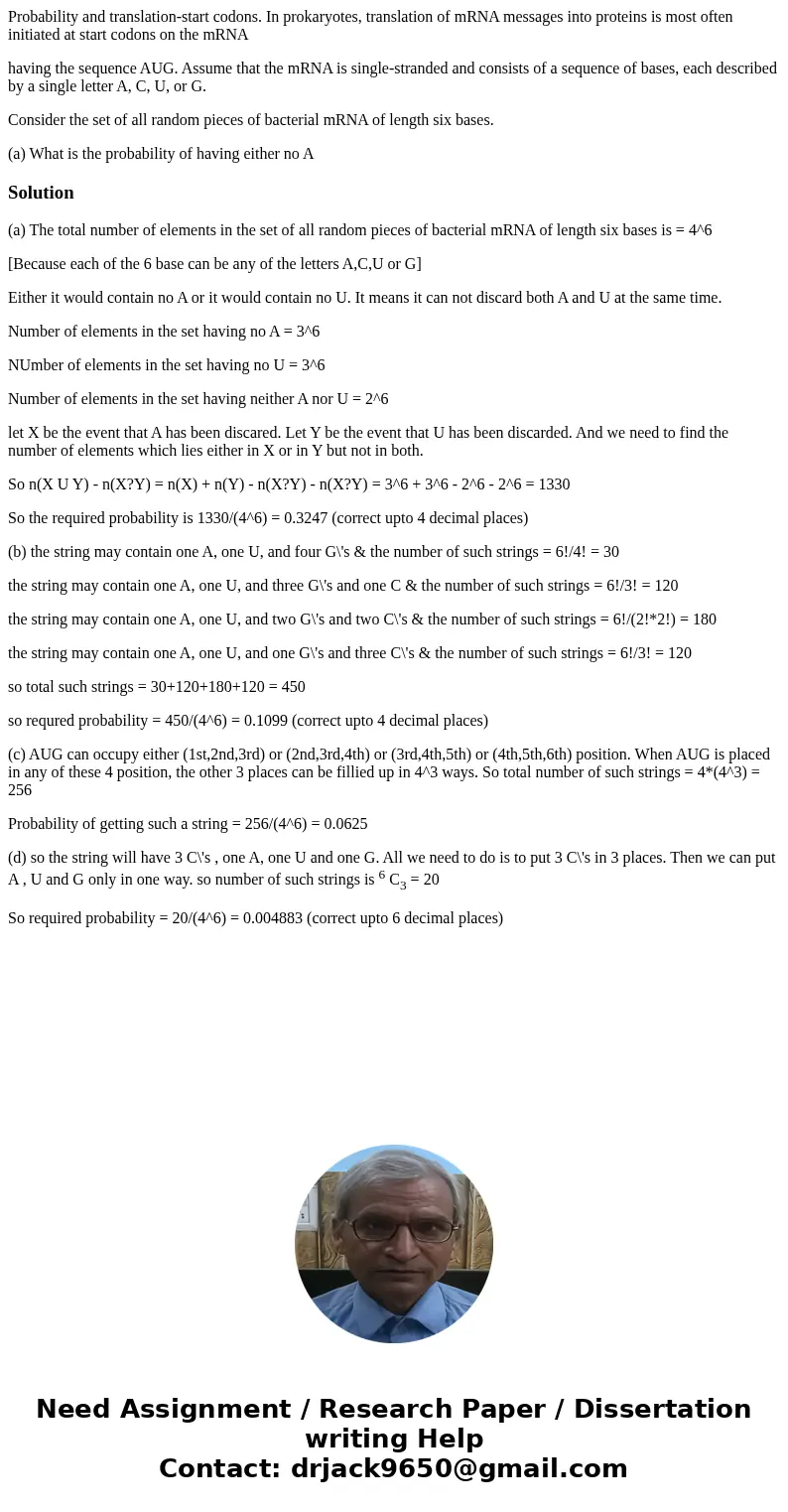Probability and translationstart codons In prokaryotes trans
Probability and translation-start codons. In prokaryotes, translation of mRNA messages into proteins is most often initiated at start codons on the mRNA
having the sequence AUG. Assume that the mRNA is single-stranded and consists of a sequence of bases, each described by a single letter A, C, U, or G.
Consider the set of all random pieces of bacterial mRNA of length six bases.
(a) What is the probability of having either no A
Solution
(a) The total number of elements in the set of all random pieces of bacterial mRNA of length six bases is = 4^6
[Because each of the 6 base can be any of the letters A,C,U or G]
Either it would contain no A or it would contain no U. It means it can not discard both A and U at the same time.
Number of elements in the set having no A = 3^6
NUmber of elements in the set having no U = 3^6
Number of elements in the set having neither A nor U = 2^6
let X be the event that A has been discared. Let Y be the event that U has been discarded. And we need to find the number of elements which lies either in X or in Y but not in both.
So n(X U Y) - n(X?Y) = n(X) + n(Y) - n(X?Y) - n(X?Y) = 3^6 + 3^6 - 2^6 - 2^6 = 1330
So the required probability is 1330/(4^6) = 0.3247 (correct upto 4 decimal places)
(b) the string may contain one A, one U, and four G\'s & the number of such strings = 6!/4! = 30
the string may contain one A, one U, and three G\'s and one C & the number of such strings = 6!/3! = 120
the string may contain one A, one U, and two G\'s and two C\'s & the number of such strings = 6!/(2!*2!) = 180
the string may contain one A, one U, and one G\'s and three C\'s & the number of such strings = 6!/3! = 120
so total such strings = 30+120+180+120 = 450
so requred probability = 450/(4^6) = 0.1099 (correct upto 4 decimal places)
(c) AUG can occupy either (1st,2nd,3rd) or (2nd,3rd,4th) or (3rd,4th,5th) or (4th,5th,6th) position. When AUG is placed in any of these 4 position, the other 3 places can be fillied up in 4^3 ways. So total number of such strings = 4*(4^3) = 256
Probability of getting such a string = 256/(4^6) = 0.0625
(d) so the string will have 3 C\'s , one A, one U and one G. All we need to do is to put 3 C\'s in 3 places. Then we can put A , U and G only in one way. so number of such strings is 6 C3 = 20
So required probability = 20/(4^6) = 0.004883 (correct upto 6 decimal places)

 Homework Sourse
Homework Sourse